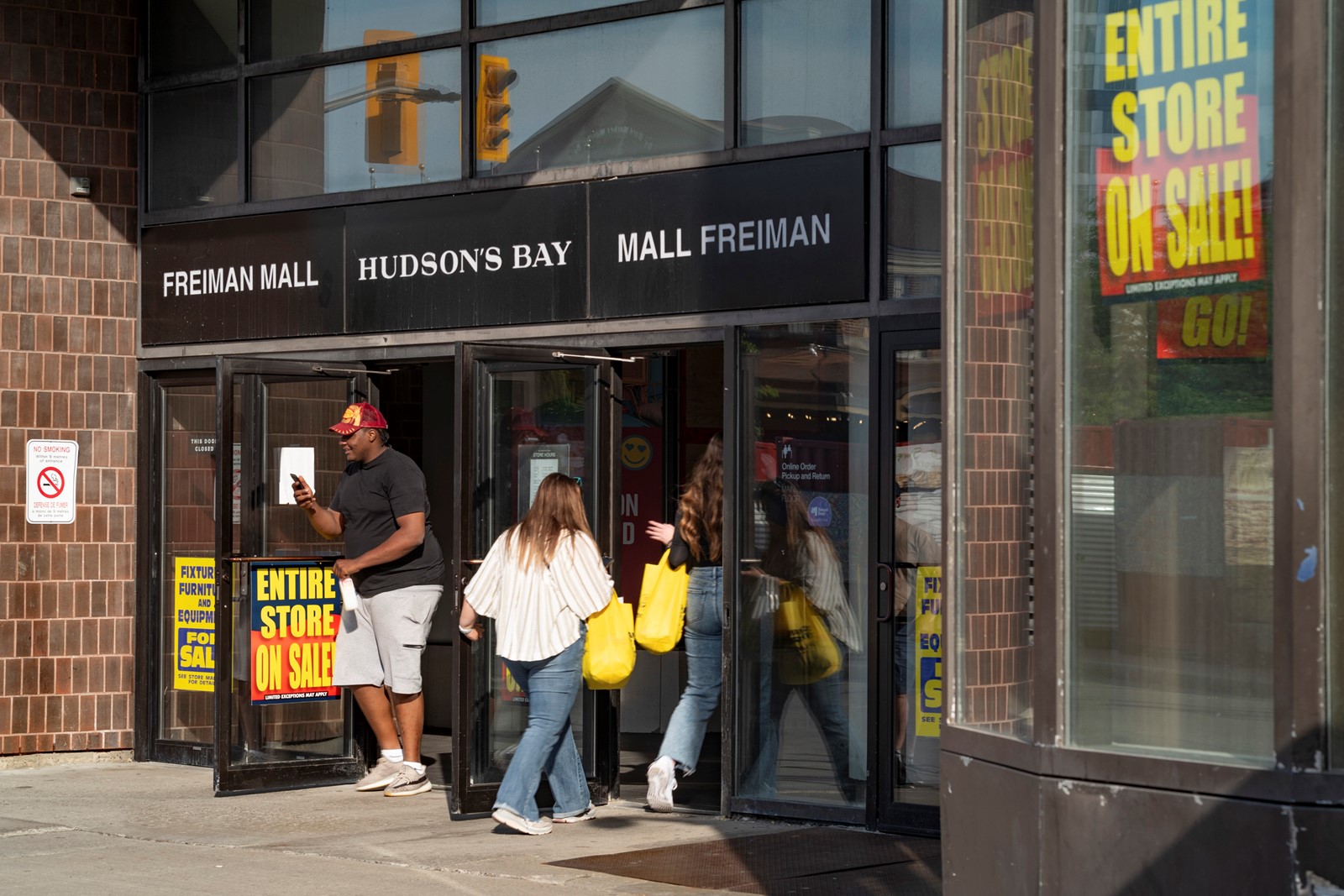
OTTAWA, Ontario — Beye Escobar was both delighted and disappointed as she emerged from the sprawling Hudson’s Bay Co. store in downtown Ottawa with two new bikinis.
While she was pleased that her swimwear had been discounted by 70%, she was not happy about the reason. On Sunday, a month after it marked the 355th anniversary of its founding, the Bay, as it is commonly known, is permanently closing its 80 department stores throughout Canada.
The company was much more than just a retailer and the last traditional, full-line department store chain in Canada. In 1670, Britain, which claimed part of present-day Canada, set up the company as a fur trader and granted it a vast stretch of territory equal to what is about a third of Canada, without asking the Indigenous people whose land it was.
“I honestly don’t know why it’s closing, but I think it’s very unfortunate because they had very good stuff,” Escobar said while waiting for her husband to emerge Wednesday from the store, where once-stylish display windows were plastered with black, yellow and red “Entire Store On Sale!” signs.“I don’t know where I’ll go now,” she added.
The Bay’s fate was sealed by the large debt it had been carrying, and it recently declared bankruptcy.
Long before President Donald Trump’s trade war and his calls to make Canada the 51st state stoked anti-American sentiment in Canada, the purchase in 2008 of a cultural institution like the Bay by Richard A. Baker, a New Yorker whose family controlled an array of shopping malls, was widely viewed with suspicion among Canadians.
At first, Baker made good on his promise that he had not bought the Bay for its real estate — although he did cash in on that later. His investments in the stores and his appointment of Bonnie Brooks, a respected Canadian retailer, as president and CEO turned Hudson’s Bay sagging fortunes around.
To compete with the rise of online retailing, Baker invested heavily in the Bay’s e-commerce. And part of Brooks’ revitalization involved playing up the company’s heritage. Merchandise, from measuring cups to wooden canoes, started appearing bearing the distinctive green, red, yellow and indigo stripes of the Bay’s “point blankets.” The blankets were first used in the 18th century to trade for furs with Indigenous people.
“It felt like a piece of Canada,” said Bryan Higgins, who was headed to the Ottawa store Wednesday for a farewell visit. “It felt like going to Tim Hortons” — another Canadian institution — “and getting a doughnut, except you were buying blankets or slippers. It was uniquely Canadian.”
Higgins rattled off a long list of store closings in Canada, starting with Eatons and Sears Canada and the relatively brief, appearances of Target and Nordstrom.
But, he added, “the Bay had a niche, it had a market. Where are people going to get their fine clothes and their unique linens?”
“Unfortunately everyone’s buying online now,” he said.
While Jesse Wong, who was visiting her son in Ottawa from Calgary, Alberta, also lamented the Bay’s demise, she was eagerly making the most of the liquidation sale. It was her fourth trip, and she hoped to get more in before returning home.
Many parts of the five-story store were already empty or filled with small armies of mannequins, boxes of clothes hangers and store fixtures of every imaginable variety — all for sale.
But Wong said that she kept returning because each day brought new deliveries of potential treasures.
Mid-last week, the most popular of those new offerings seemed to be indoor-outdoor rugs marked down by 90%.
Ashley Johnson was accompanied by a friend who had two rugs thrust into a stroller with her son. Johnson’s purchase, a throw, covered the top of her own stroller. While pleased with her bargain, Johnson was not a fan of Hudson’s Bay.
“It’s way too expensive,” she said. “The only thing I came here for was perfume — that’s pretty much the same price everywhere. I’m not going to miss it.”


 PREVIOUS ARTICLE
PREVIOUS ARTICLE
